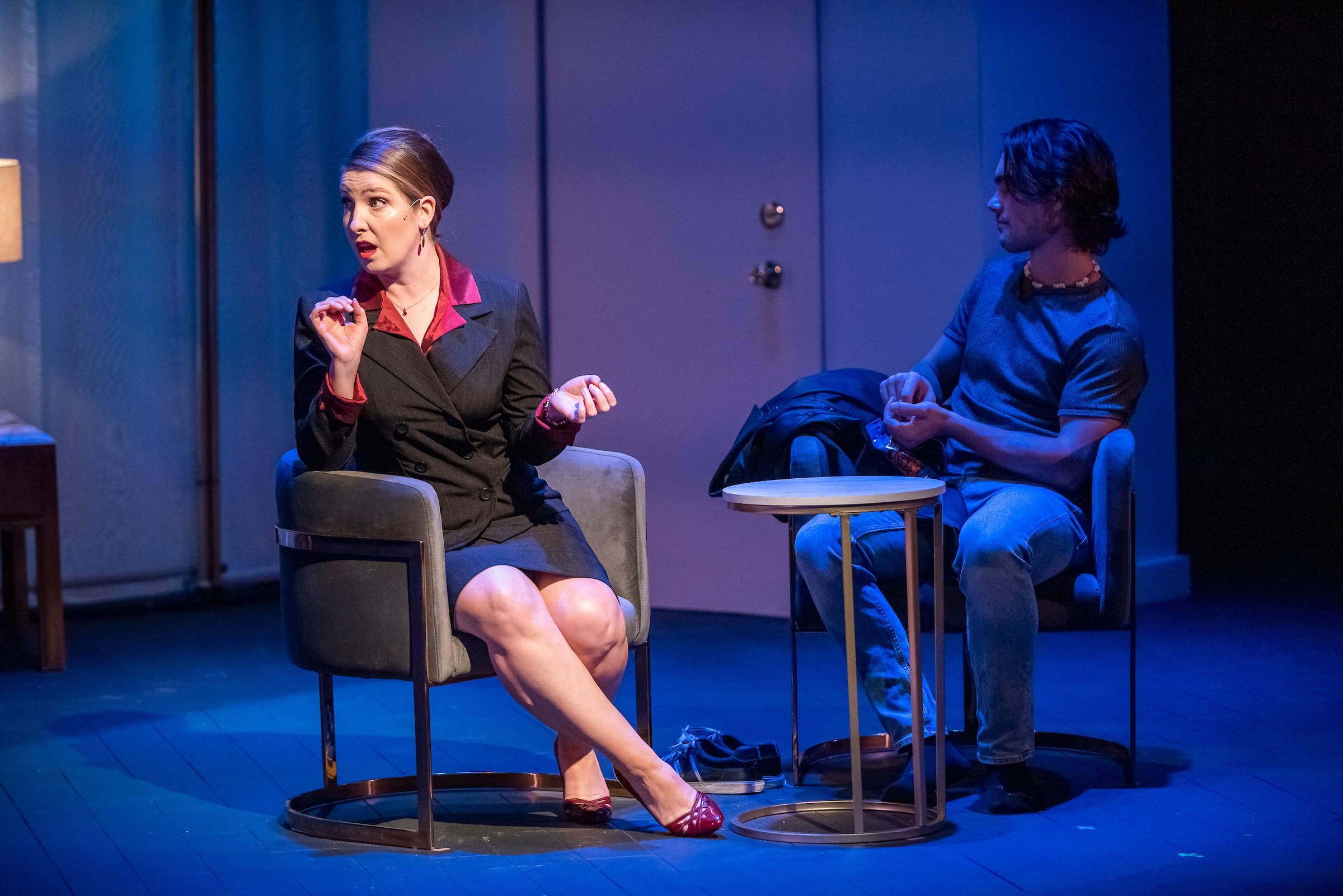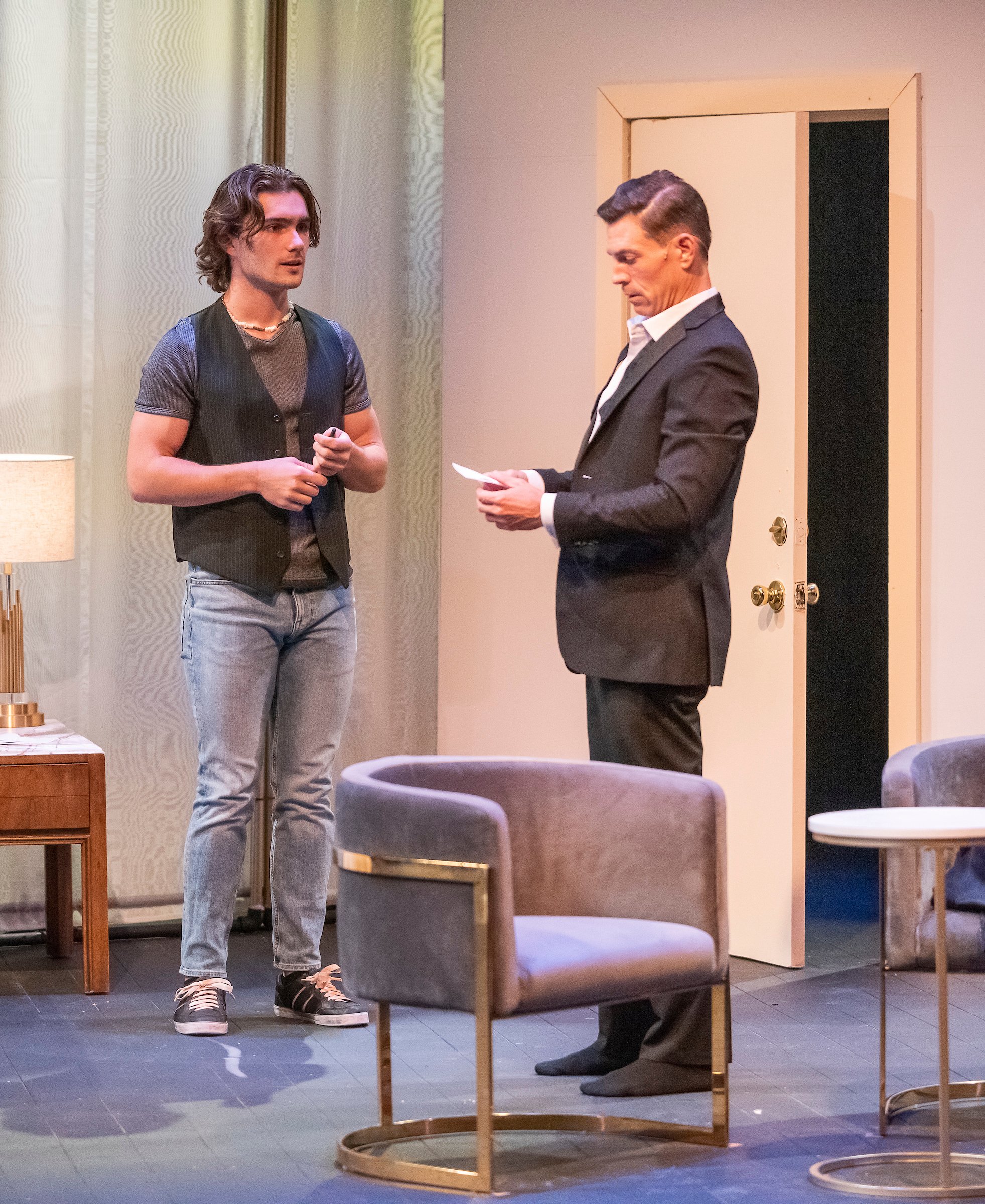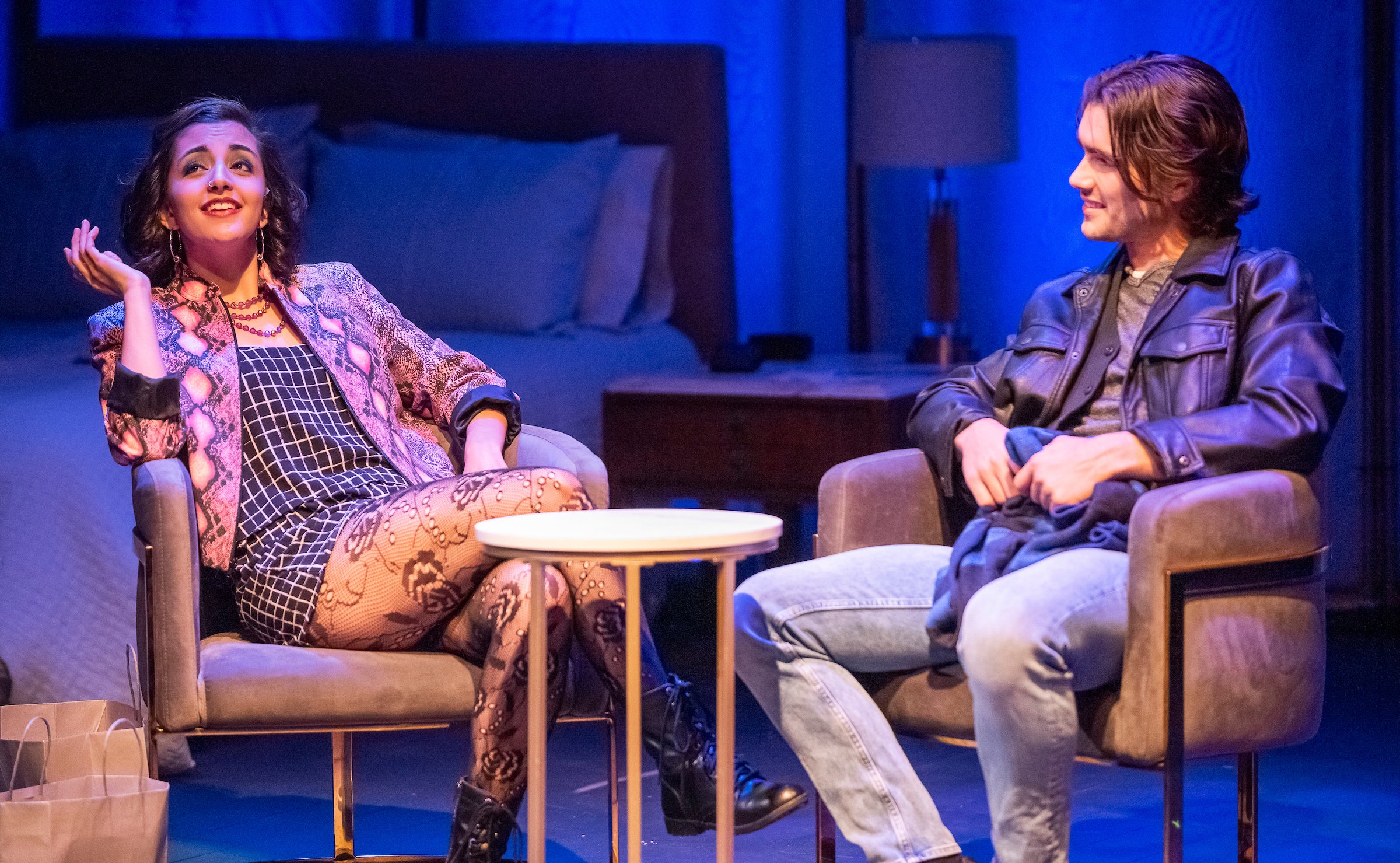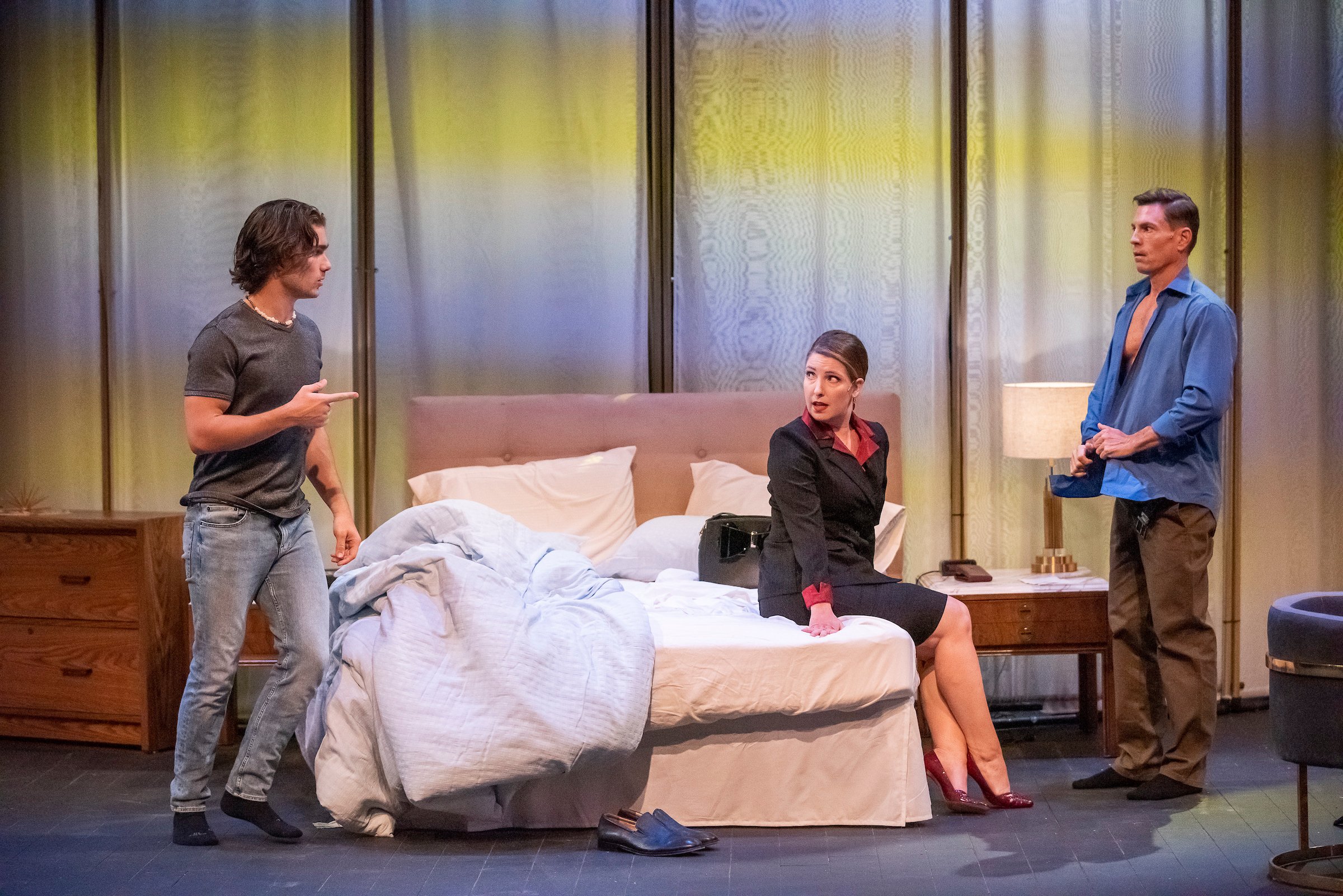The Little Dog Laughed @ Uptown Players
-Martha Heimberg
Just how far will an agent go to land her up and coming client a star-making role in a Hollywood film? And what if her handsome actor has “a light, recurring case of homosexuality”—and wants to take his mother to the big awards gala in New York City?
Uptown Player’s witty, touching production of The Little Dog Laughed, Douglas Carter Beane’s 2006 play about the personal cost of coming out of the closet, still resonates because of the essential drama arising when personal appetites conflict with worldly success. And given our country’s current deeply conservative Supreme Court, and rumors of losing gay marriage rights, the play reminds us that the playing field is not necessarily level. As our hard-edged agent says of freedom in America, “White, conservative, upper-middle-class men are the only ones who do what they want to do.”
But what about love? Meet manly Mitchell (a charming Kevin Moore), the new hot movie star, and Diane (glamorous Elizabeth Kensek), his stylish, iron-willed agent. She solves Mitchell’s homosexual “problem” by putting the word out to the paparazzi that he and she are romantically involved. After all, as Diane explains in her opening monologue, she’s a closeted lesbian, and photos of the two ecstatic lovers embracing after his winner’s speech can only boost his mega-image—and hers.
Mitch goes along with the ruse. Why not? Diane strategizes his career, and an occasional male prostitute keeps his sex drive under control. In fact, she’s hard at work schmoozing a “fag playwright” to change the lovers in his hit play from gay to hetero for the film version—so Mitch can star and make everybody rich and famous. “Butch it up,” she instructs Mitch, before setting up a meeting.
Kensek, outfitted in tight business casual and stilettos, is at her most treacherous—and hilarious—when convincing writers, playwrights, producers (all invisible on the other side of the table) that she’s the sharpest, smartest, deliver-the-goods agent who ever ordered a salad with “all the ingredients on the side.” You gotta want this glittering, relentless woman in your corner, no matter what’s at stake. Meanwhile, back at the swank hotel, drunk Mitch hires a “rent boy” named Alex (Carson Shofner plays him as gentle and somehow naïve) a young dude with a gym-built body and a sweet smile. If Kensek is a hard-hearted pro, Alex is clearly a softie. When Mitch says he’s not really gay, but likes to experiment occasionally, Alex insists he’s actually got a girlfriend and just has sex with men to pay the rent. Uh huh. After more visits, and more denials and confessions, the two men fall in love.
The scenes of this discovery are the tender center of Beane’s play, and Moore and Shofner convincingly convey that first-time shared intimacy, both humorously and passionately. It’s funny and sad at once to watch the two guys trying to figure out what a life in each other’s arms and out of the closet might look like. And then there’s Alex’s buddy and sometimes girlfriend Ellen (an alluring, wanna-be-tough Shyama Nithiananda), a party girl in fancy net stockings and mini-skirt who’s screwing an old man to finance her compulsory shopping trips. Ellen totally knows there’s something new going on with Alex: he’s suddenly solicitous of her feelings and so intense in the sack. Nithiananda’s energy and comic delivery is at its best when weary Ellen, dumped by both guys, describes her 3 a.m. return to “my screeching mother’s house”—where she finds her old bedroom crammed with arts and crafts stuff. “My childhood is so f***ing over,” she moans.
Director Robin Armstrong keeps her four characters moving through short scenes and monologues via Donna Marquet’s spare, elegant set design, featuring a hotel bedroom in one section and a café table and chairs in another, each appearing with a scene shift on the Kalita Humphreys’ circular moving stage. The device creates a narrower playing space on the big stage for this essentially intimate play. The flattering costumes (credited to Suzi Cranford, Breianna Barrington, and Jordan Rodriquez) help define the curvy figures and style of the women. Aside from a tux and a T-shirt, the men’s costumes are mostly briefs and bathrobes. What else?
So what does happen when Mitch and Alex fall in love? The confusion that their honest affection for one another creates cranks the plot of the play, first through a what-if scene or two, and then to a hard look at the reality of each character’s situation, when push comes to love.
The final scenes of the play hold lots of surprises. How do you define a happy ending? Of course our gal Diane is on the job, challenging the characters to admit what their true idea of happiness is. She even knows (exactly) what it costs! Go see what Beane’s Little Dog is laughing about. The show is a great learning experience—particularly if you think you have it all figured out.
WHEN: Through August 28
WHERE: Kalita Humphreys Theater, Dallas
WEB: uptownplayers.org



